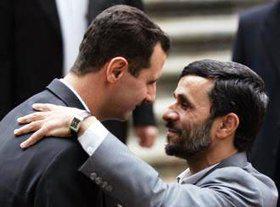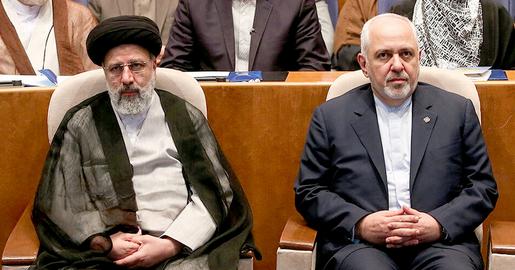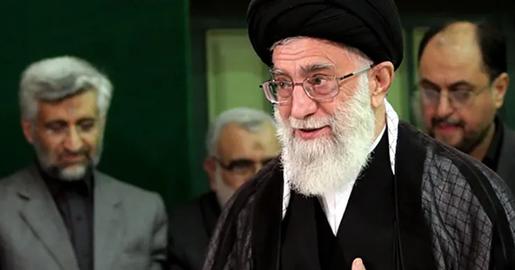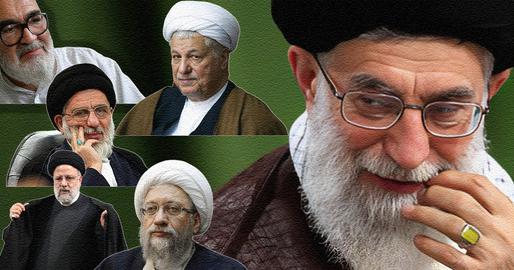
Since 2003 and the US-led invasion of Iraq, the Middle East has seen a dramatic aggravation of sectarian rhetoric and violence. The brutal and indiscriminate sectarian cleansing of Sunni-Shia neighborhoods in Baghdad throughout 2006 and beyond is still vivid in many of our minds. However, since the spate of historic uprisings across the Arab world which began in December 2010 and specifically the onset of the Syrian civil war and the gruesome levels of carnage witnessed there, the issue and discourse of sectarianism appears to not only have become more vitriolic and malevolent, but to have spread and engulfed much of the broader region. From the prominent preacher Yusef Al-Qaradawi calling for a Sunni jihad against Iran in Syria, to the lynching of four Shia in Abu Musallim in Greater Cairo on June 23, inter-sectarian tensions and mutual suspicion are at an all-time high, with enormous consequences spanning from North Africa to Pakistan.
In this interview we spoke to two noted experts for their views on this most inflammatory of subjects and their thoughts as to the reasons why the ‘sectarian factor’ has become such a burning issue across the Middle East. Sajjad Rizvi teaches Islamic Intellectual history at the University of Exeter, and has consulted various governments on sectarian relations in the Middle East and South Asia and Fanar Haddad is a research fellow at the Middle East Institute, National University of Singapore, and has previously lectured at the University of Exeter and served as a research analyst at the Foreign and Commonwealth Office.
In Part Two of the interview they examine the influence of Iran's regional involvement in Lebanon, Syria and Iraq on the rise of sectarianism, and the Islamic Republic's motivations in backing Bashar Assad's regime.
To what extent has Iran's involvement or interference (depending on your point of view) in Iraq, Lebanon and Syria fuelled sectarian tensions? Has the Islamic Republic's drive to paint the Arab uprisings of recent years as an "Islamic Awakening", while conveniently ignoring what has been unfolding in Syria, damaged its reputation in the Sunni world beyond repair?

Haddad: Despite its rhetoric Iranian foreign policy has been no less a pernicious influence on sectarian relations in the Arab world than that of Saudi Arabia or any of Iran’s other competitors. Arab Shi’as have always – and more so since 1979 and never more so than today – been unfairly accused of pro-Iranian sympathies and of potentially having subversive and treacherous inclinations. In some cases they have even been suspected of being a threat to the nation. Many of their fellow Arabs see them as, at best, hyphenated Arabs whose loyalties are shrouded in ambivalence. The Arab Shi’a has to essentially prove his/her Arab – even Islamic – bona fides to a largely skeptical Arab public (in other words, it is often the case that the Arab Shia is Iranian until proven innocent!)
Iran’s involvement/interference validates these myths and fears much to the further detriment of Arab Shi’as. Furthermore, the at times disproportionate impact that Iranian involvement has on people’s perception ensures the sectarianization of issues even if they are not directly related to sectarian identity or sectarian relations. Unfortunately these processes are self-perpetuating: the more sectarian an issue becomes and the stronger the feeling of sectarian encirclement the more likely it is that Arab Shi’a organizations and leaders will end up doing that which they have always been accused of: namely, turning to Iran for support. Finally the Iran-factor blurs the lines (in perception at least) between sect and regional power politics and between sect and ethnicity.

Rizvi: Perhaps the surprising and striking thing is that Iranian policy is not by definition sectarian. Since the revolution and the early days of trying to export it especially to Iraq and the Gulf, the revolutionary regime tried to maintain a pan-Islamist appeal – and certainly Khamenei and the government continues to avoid the language of sectarianism. However, at the same time, they do not do enough to distance themselves from accusations that they are intervening in other states – and the experience of Iraq, where they are deeply influential in government and many other institutions, does ring alarm bells in Riyadh and many other Arab capitals. The demand for loyalty to be loudly proclaimed by the Arab Shia is becoming hysterical – especially as loyalty does not only mean partaking in some of the frankly racist idioms in which Iranians are discussed but also a disavowal of basic aspects of Shia identity. Saudi backed actors in the region openly desecrate Shia shrines and other symbols of identity or kill Shia for the simple reason that they are. Iranian backed actors on the whole still do not.
What are the chief motivations in your mind for the Islamic Republic's resolute backing of the Assad regime? Is it merely a political and geo-strategic issue?
Rizvi: Iran has few friends in the region – and on the whole they find themselves surrounded by unfriendly powers. One of the unintended consequences of the ‘Arab spring’ has been to widen the sphere of Saudi influence, and given such a context it is not surprising that some in the government and the Revolutionary Guards think it is imperative to hold onto Syria as one needs some friends and allies in the region. If relations with Saudi were better, if there was any real evidence of a growing thaw in relations with the EU and the USA, then one suspects that Syria would be seen differently. Thus far, Rouhani does not seem to be changing policy on Syria, partly perhaps because he is not the reformer that some think him to be and partly because the wider context in which he finds himself has not changed. Furthermore, giving up on Syria would be giving up on Hezbollah – and a transfer of both Lebanon and Syria into a Saudi sphere of influence.
Haddad: Couldn’t agree more. I think political and geostrategic considerations – at least at the policymaking level – rather than identity solidarity is what drives Iran’s Syria policy. The idea that Iran is supporting its ‘fellow Shi’as’ in Syria is difficult to sustain given that the Allawis in Syria are not really Shi’as and (as a religious group) they were viewed with ambivalence at best by Iran. What I would add however is that the idea that a Shi’a alliance is at work in Syria has developed a life of its own that fits neatly with the sectarian meta-narratives of the past decade. Indeed other actors in Syria (both Sunni and Shi’a) are very much motivated by sectarian identity; the individual militant may well reckon himself a part of a sectarian battle royale – needless to say such convictions cyclically interact with significant elements of popular perception in the region.
What are the implications for Iran, should the current climate of sectarian tension worsen? Will it eventually impact Iranian and various other Shi'a pilgrims' access to shrine cities in Iraq, or Iran's extensive activities in Lebanon?
Haddad: Well this has already happened with Iranian and other pilgrims being targeted in Iraq on many occasions over the past decade. Some believe that recent developments are serious enough to isolate Iran in the Arab Middle East. However, having said that, it is worth remembering that despite the toxicity of Iranian relations with the Gulf and despite the poisonous rhetoric, Iran’s trade with the UAE stands in the billions and I doubt either side will allow that to be disturbed – regardless of the rhetoric! Post-Assad Syria and Lebanon are a more complicated and more dangerous issue – however it is far too early to speculate on that.
Rizvi: Pilgrims have already been targeted – and sometimes not just from Sunni militants! The real concern for Iran would be what happens in Iraq – a serious implosion as all expect in Syria will certainly have a knock-on effect in Iraq. Losing Iraq to instability coupled with the lack of influence on its government would be a major blow to everything that the Iranians have gained since 2003. The continuing weakness on the Iranian domestic front will also hamper their ability to do much about it.
What has the Syrian Civil War done for sectarian relations in Iraq? How has the Maliki government sought to address the issue, if at all? What has been the fall out?
Haddad: The Syrian civil war has exacerbated Iraq’s already tense sectarian relations and has further encouraged the idea that a transnational sectarian struggle is underway. I think the Syrian crisis – from its early stages – exposed Iraq’s sectarian divisions in a most pronounced way. The emergence of ‘Sunni’ and ‘Shi’a’ positions was also seen during the Bahraini protests; however Bahrain lacked the longevity, proximity and lethality of Syria – it is these factors (rather than sectarian identity in and of itself) that have turned Syria into the region’s Congo. The Maliki government has been in a difficult situation from the very beginning. Whilst there is no love lost between Baghdad and Damascus, Iraqi political leaders believe that the fall of Assad would spell disaster for Iraq and would see sectarian strife accelerating in already difficult times. Some Iraqi political leaders – perhaps including Maliki himself – do see the Syrian civil war in existential terms as part of a titanic Sunni-Shi’a struggle potentially imperiling Shi’as everywhere. This has affected Iraqi policy (official or covert) on Syria and has further exacerbated Iraqi sectarian relations.
Rizvi: The linkage between Iraq and Syria is difficult to untangle now that the Al-Qaeda affiliate has clearly redesignated themselves as AQ in Iraq and Sham. The influence of the jihadis who were previously in Iraq playing a role in Syria is clear – and it also explains the recent trend for Shia from Iraq to get sucked into the conflict in Syria because of the appeal to protect the shrines (especially Sayyida Zaynab in the outskirts of Damascus) and to fight Sunni jihadis. The increasingly sectarian language of the protestors and defectors from government in Anbar and their responses both in some of the official pronouncements of the Iraqi government and indeed their acts of repression are clearly incited by the brutality of the Syrian civil war. The situation in Iraq seems to shift between two sets of conflicts: between different conceptions of the state and nationalisms, even Iraqisms, and between communities. The fragility of the national bargain in Baghdad often means that the latter comes to the fore – and is exacerbated by external influences and actors. The future does not look good for Iraq.
























comments